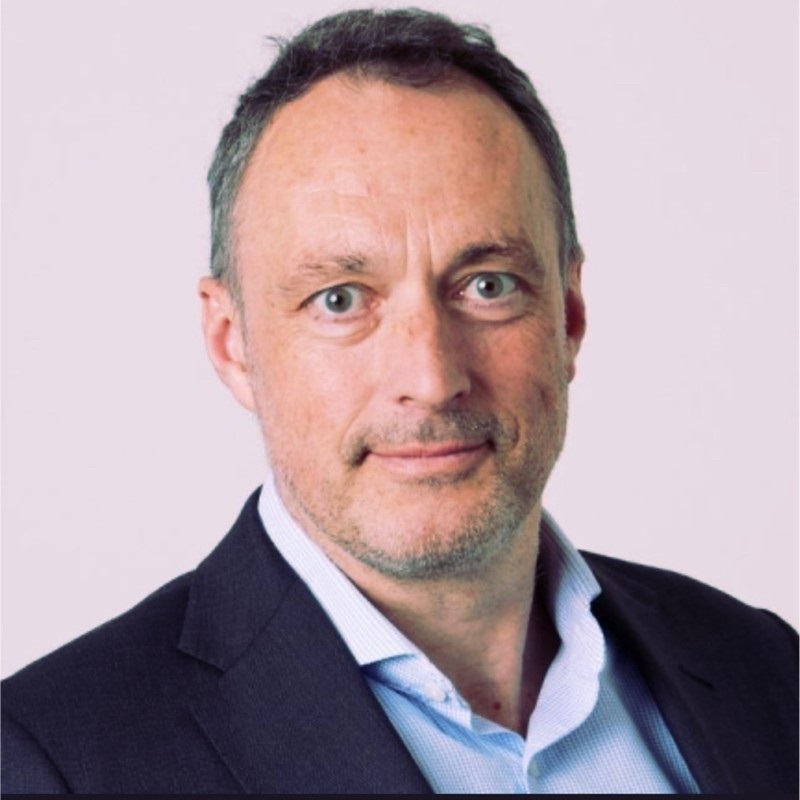Conference is divided into two days. On the first day, there will be a conference and evening networking programme prepared for you. On the day two, we will continue with the conference program in two separate conference rooms.
- Specialists sharing their experience
- Inspiration from automotive industry experts
- New contacts and networking
- Evening raut
How it will run
After opening the conference on Tuesday morning, we will start the first lectures. Then, lunch will be served at the hotel restaurant. After the lunch break, we will continue with the next set of lectures. If you find it difficult to concentrate you may welcome regular coffee breaks for your refreshment. After the last lecture, you will have some time to rest. An evening raut will take place in the nearby restaurant Talska bastion with the opportunity for informal networking.
Second day, after breakfast, the conference will continue with interesting lectures and panel discussions. Lunch will be served at the restaurant of Hotel Partizan.
*conference program is subject to change
April, 23rd (Tuesday)
from 8:30 Registration

Registration and badge collection
Registration will start on day one of the conference at 8:30 AM at the hotel Partizan lobby and will continue until lunch. After lunch on the first day, the registration of participants will be possible at the info booth in the conference foyer on the first floor.
09:30 - 09:40 Conference opening
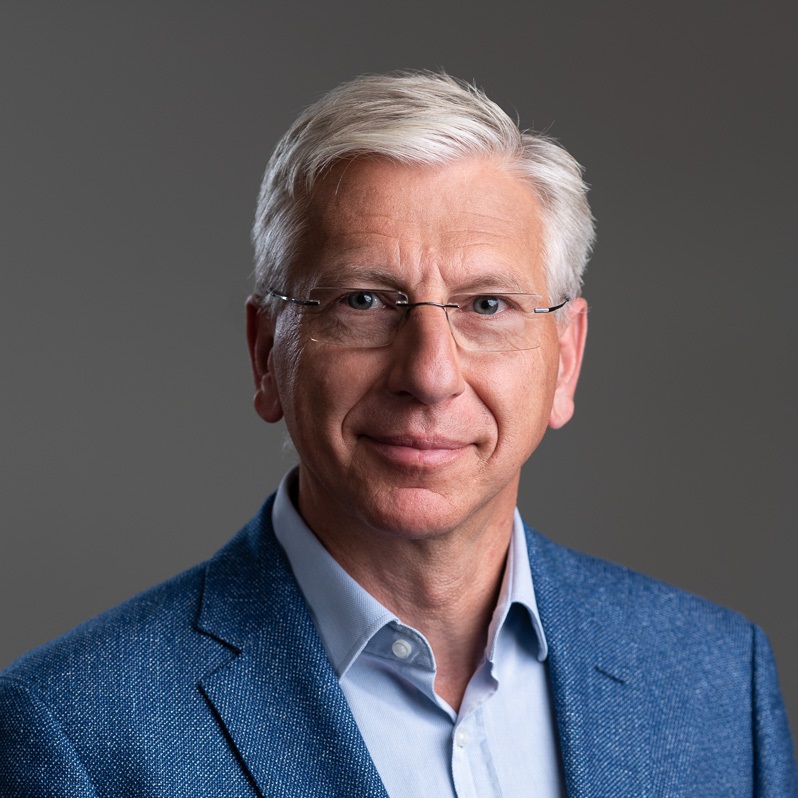
Alexander Matušek
President, Automotive Industry Association of the Slovak republic
He heads the External Relations / Environment / Social Services department at Volkswagen Slovakia, a.s. In the past, he was responsible for the management of the entire logistics at Volkswagen Slovakia and also held several management positions within the Volkswagen Group in Portugal and the USA. Since 2018, he is the President of the Automotive Industry Association of the Slovak Republic (second term). In 2018, he was elected Vice President of the Federation of Slovak Industrial and Transport Associations.
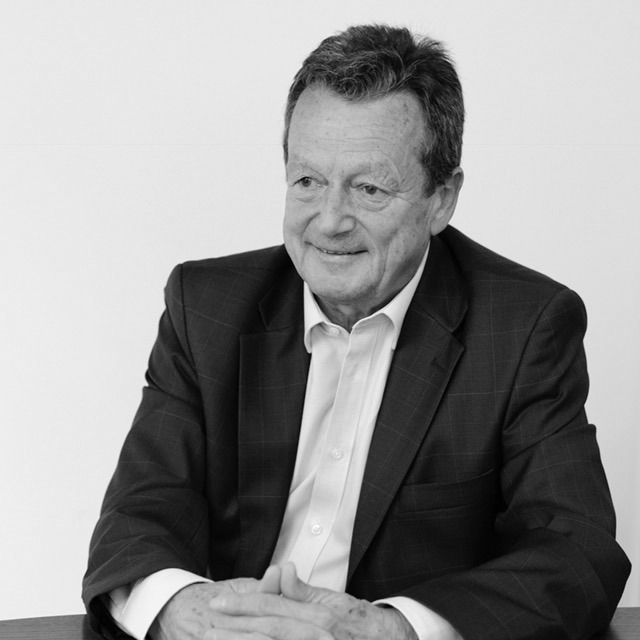
Ivan Hodáč
Event host, founder of Aspen Institute Central Europe, former ACEA Secretary-General
Ivan Hodač is a Founder and President of the Aspen Institute Prague. He was Secretary-General of the European Automobile Manufacturers’ Association (ACEA) from 2001 until October 2013. He is the Chairman of the Board at cabinet DN. The Financial Times listed him among the most influential personalities in Brussels politics. Before joining ACEA, he was Senior Vice-President and Head of the Time Warner Corporate office for Europe. Previously he was Secretary-General of the trade organization IFMA/IMACE, Senior Economist at Didier & Associates, and Assistant Professor at the College of Europe, Bruges. He was born in Prague, where he studied mechanical engineering. He completed his education in economics and political science at the University of Copenhagen and the College of Europe in Bruges (European studies).
09:40 - 10:30 Transformation of industry from European and Slovak point of view – panel discussion
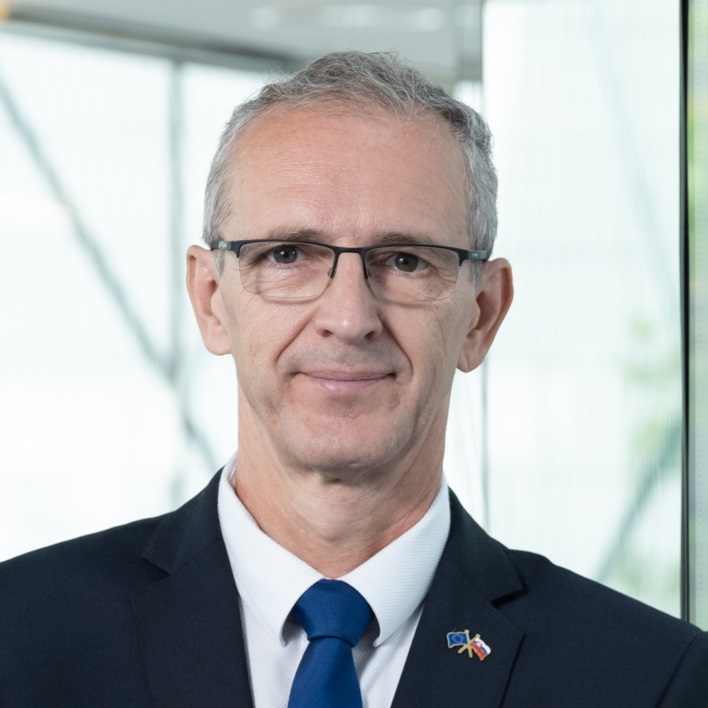
Ivan Štefanec
Member of the European Parliament
Ivan Štefanec has been a member of the European Parliament since 2014, where he is still an active member of the Committee for the Internal Market and Consumer Protection (IMCO). He is a permanent member of the Delegation for relations with Japan and also a substitute in the Committee for Industry, Research and Energy (ITRE) and in the EU Delegation – Ukraine. As chairman association SME Europe focuses on small and medium-sized enterprises, employment, entrepreneurship and the (digital) single market. Before entering politics, he worked at Coca-Cola Beverages Slovakia, first as financial director and then as executive director. He later became director of European integration for Coca-Cola HBC in Vienna. He was the first Slovak to receive the Dale Carnegie Leadership Award, which is considered the most important award in the field of management.
In the discussion, we will look at the current state of industrial transformation from both European and Slovak perspectives, especially regarding the economic and (geo)political situation – where we are, what challenges we will face, and what is the outlook for the coming years.
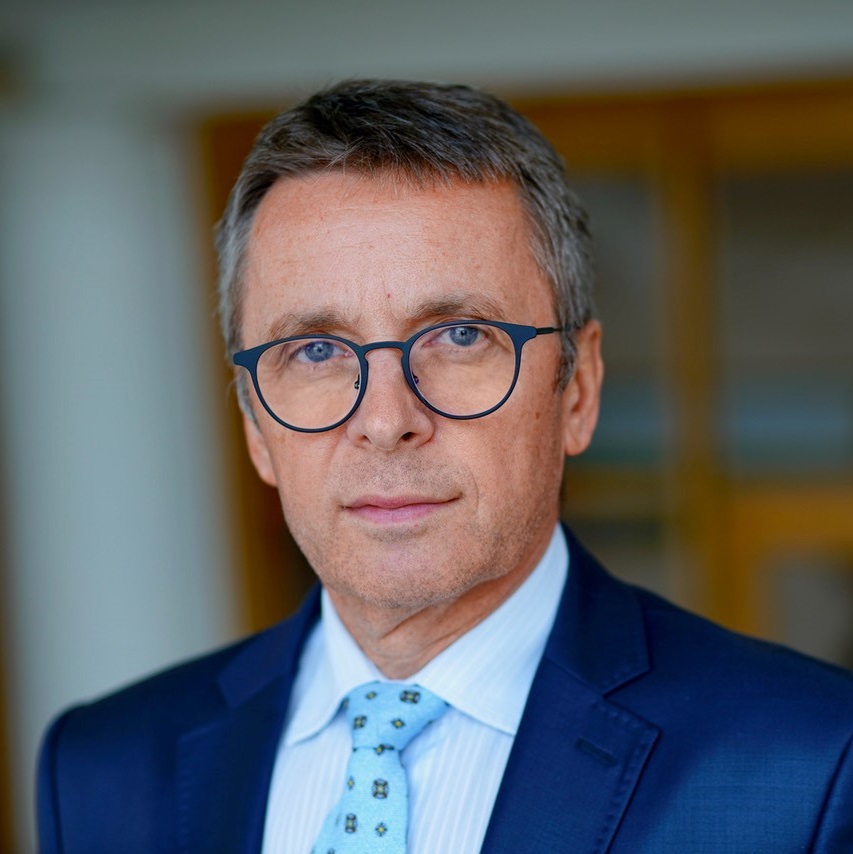
Ivan Mikloš
Economic expert, former Minister of Finance of Slovak republic
Ivan Mikloš was Deputy Prime Minister and Minister of Finance of the Slovak Republic in 2002-2006 and 2010-2012. In the first government of Mikuláš Dzurinda, during the years 1998-2002, he held the post of Deputy Prime Minister for the Economy. In 1991, he became Minister of Privatization (1991-1992). Subsequently, in 1992 he co-founded and until 1998 led the economic think-tank MESA10. In the period 2006-2010 and 2012-2016, he was a member of the National Council of the Slovak Republic. In 2014, he was re-elected as the president of the MESA10 think tank and became a member of the board of international advisers of the National Reform Council of Ukraine and the VoxUkraine platform. During the years 2015-2016, he held the position of chief advisor to the Ukrainian Minister of Finance and was also an advisor to the Ukrainian Minister of Economy. From April 2016 to August 2019, he served as the chief economic adviser to the Prime Minister of Ukraine. After the change of government, from November 2019 to March 2020, he was the economic advisor to the newly elected Prime Minister of Ukraine. In 2016-2020, he led the strategic group for the support of reforms in Ukraine (SAGSUR). He is also a co-founder of the Ukrainian economic think-tank Center for Economic Strategy. In 2021-2022, he also worked as an advisor to the Prime Minister of Moldova. In March 2022, he became an adviser to the President of the Slovak Republic in the field of economic policy.
Ivan Mikloš was one of the leading figures of economic transformation in Slovakia. During his tenure in the governments of Mikuláš Dzurinda in the years 1998-2002 and 2002-2006, Slovakia recorded several international successes, including entry into the OECD (2000), NATO (2004) and the European Union (2004). He was the main architect of the reforms, thanks to which Slovakia was named the most reformed country in the world in 2004 by the World Bank. He was awarded “Best Minister of Finance” in 2004 according to Euromoney magazine poll. He is the recipient of many domestic and international awards and the author of numerous professional publications, articles and blogs.
In the discussion, we will look at the current state of industrial transformation from both European and Slovak perspectives, especially regarding the economic and (geo)political situation – where we are, what challenges we will face, and what is the outlook for the coming years.
10:30 - 11:00 Volkswagen Slovakia – Challenges and Opportunities in the Automotive Industry: Monitoring the Global Situation an...
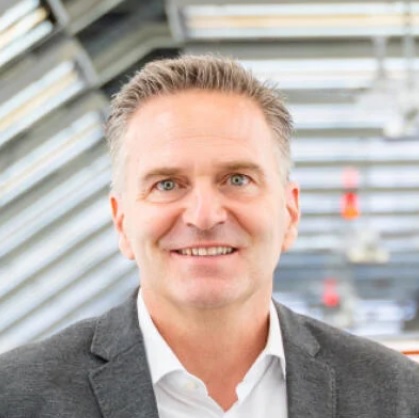
Wolfram Kirchert
Chairman of the Board of Management and Member of the Board of Management, Production, Volkswagen Slovakia
Wolfram Kirchert is a graduate engineer and a graduate engineer in economics, he worked for the Porsche brand for 25 years. He has extensive professional experience in the field of production and project management, having worked in various management positions, including from 2002 as Head of Outsourced Manufacturing Management, from 2003 as Project Manager for Boxster/Cayman Product Line Production and from 2012 as Head of Project Planning vehicles and plant structure. Since 2018, as head of production planning, he has been responsible for product and process planning across all Porsche plants and product lines. In September 2023, he joined Volkswagen Slovakia as chairman of the board and member of the board of directors for the technical area.
This lecture offers an insight into the current and future conditions and challenges in the automotive industry, from geopolitical conflicts and resource scarcity to technological change and competition. It provides an insight into Volkswagen Slovakia’s approach to assert itself in this rapidly changing environment
11:00 - 11:30 Networking break

Congress foyer
11:30 - 12:30 Transformation of the automotive industry in Slovakia: perspectives and challenges – panel discussion

Wolfram Kirchert
Chairman of the Board of Management and Member of the Board of Management, Production, Volkswagen Slovakia
Wolfram Kirchert is a graduate engineer and a graduate engineer in economics, he worked for the Porsche brand for 25 years. He has extensive professional experience in the field of production and project management, having worked in various management positions, including from 2002 as Head of Outsourced Manufacturing Management, from 2003 as Project Manager for Boxster/Cayman Product Line Production and from 2012 as Head of Project Planning vehicles and plant structure. Since 2018, as head of production planning, he has been responsible for product and process planning across all Porsche plants and product lines. In September 2023, he joined Volkswagen Slovakia as chairman of the board and member of the board of directors for the technical area.
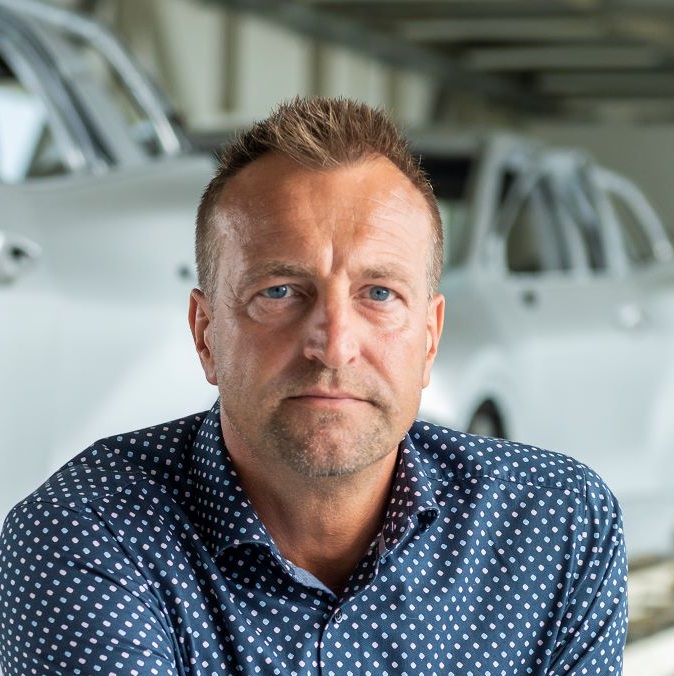
Roman Kraľovanský
Head of Production Group, Kia Slovakia
Roman Kraľovanský started his career at Kia Slovakia in the spring of 2005, when he started working in the maintenance section at the Press shop, and later worked as a maintenance supervisor for the Press shop, Body shop and Engine shop sections until 2009. In 2010, he was appointed Head of the Body shop department, where he was responsible for the production of vehicle bodies. Later, he headed the final assembly of cars for five years. In October 2017, he was appointed to the position of Head of the Production Sub-Division, responsible for the complete production of vehicles from stamping, through their welding, painting, including assembly, to which the production of engines was added in April 2022. As of September 1, 2022, he was appointed to the position of Head of Production Group responsible for the manufacturing group including the maintenance department.

Alexander Matušek
President, Automotive Industry Association of the Slovak republic
He heads the External Relations / Environment / Social Services department at Volkswagen Slovakia, a.s. In the past, he was responsible for the management of the entire logistics at Volkswagen Slovakia and also held several management positions within the Volkswagen Group in Portugal and the USA. Since 2018, he is the President of the Automotive Industry Association of the Slovak Republic (second term). In 2018, he was elected Vice President of the Federation of Slovak Industrial and Transport Associations.
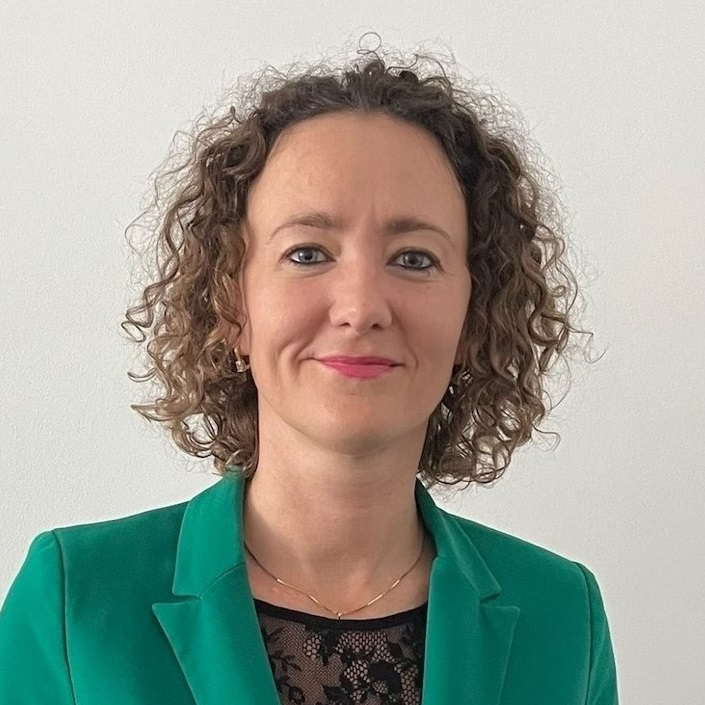
Veronika Fečová
Head of Supply Chain Coordination, Volvo Car Slovakia
Veronika grew up in Prešov and after 6 years in Prague she have now moved back to home. She studied at Košice Technical University, Faculty of Manufacturing technologies in Prešov. After the studies she worked at the University for 5 years. During last 9 years Veronika have been working in Quality and Procurement departments in various positions, mainly within Supplier Management. Veronika has been working at Volvo Cars since 2017.
12:30 - 14:00 Lunch

Hotel Partizan Restaurant
14:00 - 14:30 Navigating the incentives landscape in automotive industry and key decisive drivers for investing in CEE

Lenka Bartoňová
Director Global Location Services & Incentives, EMEIA Tax Center, EY
Lenka is a Director in the Vienna EY office and joined EY in 2021. Previously, she was a State Aid Leader at another big 4 Company, a former Director of Strategic Investment Department at the Ministry of Economy of Slovak Republic and Head of Investment Project Management Department at the Slovak Investment and Trade Organization.
During her career, Lenka gained practical experience from her work with the European Commission as well as OECD. She has more than 20 years of experience in the field of State Aid law, FDIs, Structuring of cross-country Investments, R&D&I Aid, and the Governing of State Aid, with more than 30 successful projects from the area of Regional Investment Aid.
Lenka has deep knowledge of European Commission notification procedures, ensuring the notification of State Aid for projects.
She is an Official State Aid advisor of several public institutions and Professional Unions in Slovak Republic and a permanent speaker at Foreign Direct Policies Forum and the Joint Vienna Institute.
– Key Drivers for Investments in CEE
– Overview of key incentive opportunities for automotive investments across CEE
– Temporary Crisis and Transition Framework (TCTF)
14:30 - 15:00 Electrifying research and development in Slovakia – from the creation of the department to the creation of ...
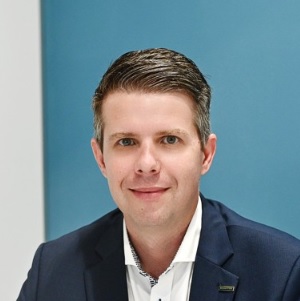
Ján Klimko
Head of R&D, Schaeffler Kysuce
Ján Klimko is the head of the R&D department at Schaeffler Kysuce, where he has been working for more than 15 years. During his managerial career, he was behind the most important strategic projects in the field of R&D in Kysuce: management of complete local development competence for specialized wheel bearings, launch of new mechatronic products, for example active drive stabilizers, as well as other projects in the field of electromobility.
He is a graduate of the Faculty of Mechanical Engineering of the University of Žilina in the field of applied mechanics. He actively promotes the study of technical fields and supports the connection of theory and practice also in the Young R&D Engineer program, which was successfully launched at Schaeffler Kysuce.
Shaping one of the most significant Slovak research and development centers in the field of component design and mechatronic systems, prototyping, and their testing along with product industrialization.
15:00 - 15:10 AIA SR award for digitalization of the automotive company – announcement of the winner

Alexander Matušek
President, Automotive Industry Association of the Slovak republic
He heads the External Relations / Environment / Social Services department at Volkswagen Slovakia, a.s. In the past, he was responsible for the management of the entire logistics at Volkswagen Slovakia and also held several management positions within the Volkswagen Group in Portugal and the USA. Since 2018, he is the President of the Automotive Industry Association of the Slovak Republic (second term). In 2018, he was elected Vice President of the Federation of Slovak Industrial and Transport Associations.

Ivan Hodáč
Event host, founder of Aspen Institute Central Europe, former ACEA Secretary-General
Ivan Hodač is a Founder and President of the Aspen Institute Prague. He was Secretary-General of the European Automobile Manufacturers’ Association (ACEA) from 2001 until October 2013. He is the Chairman of the Board at cabinet DN. The Financial Times listed him among the most influential personalities in Brussels politics. Before joining ACEA, he was Senior Vice-President and Head of the Time Warner Corporate office for Europe. Previously he was Secretary-General of the trade organization IFMA/IMACE, Senior Economist at Didier & Associates, and Assistant Professor at the College of Europe, Bruges. He was born in Prague, where he studied mechanical engineering. He completed his education in economics and political science at the University of Copenhagen and the College of Europe in Bruges (European studies).
15:10 - 15:40 Lecture: Winner of AIA SR award for digitalization of the automotive company
15:40 - 16:20 Networking break

Congress foyer
16:20 - 16:50 Circular economy and up-coming EU legislation with environmental requirements – How to take the advantage of them...
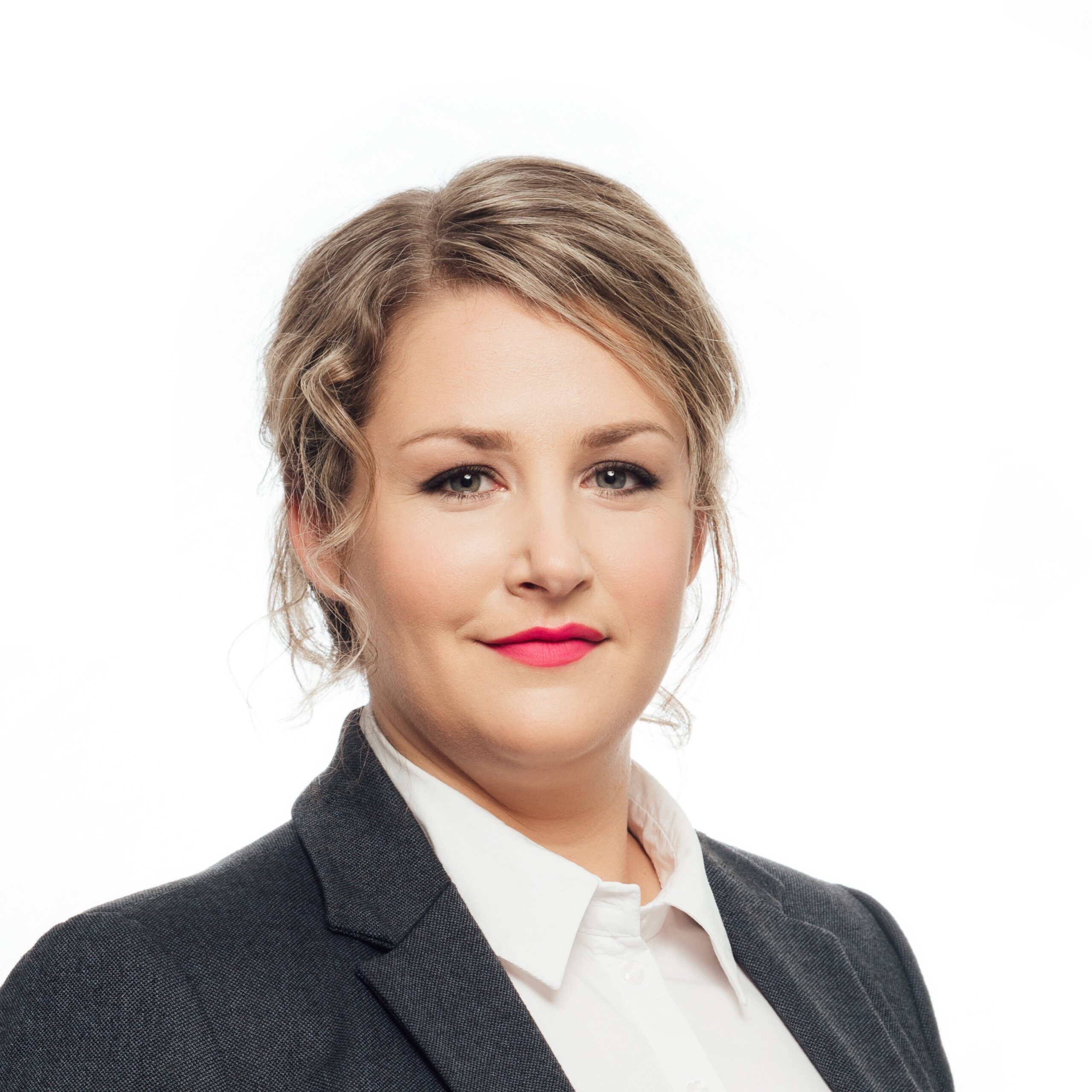
Michaela Hletková Ploszeková
Member of the Commission for Environmental Legislation, Automotive Industry Association of the Slovak Republic
She is head of Environment Department at Volkswagen Slovakia. She has been involved in the application of environmental protection in car production for over 16 years – implementing the requirements of legislation and environmental management systems in production processes, design and implementation of environmental strategy or preparation of concepts and plans to reduce environmental impacts for environmental and energy-intensive technologies. As a chairman of the Environmental Legislation Commission of the Association of the Automotive Industry of the Slovak Republic, she prepares opinions and proposals for comments on the environmental legislation of the Slovak Republic and the EU. Since 2021, she has been active as a member of the Government Council for the Green European Agreement of the Slovak Republic for the Federation of Slovak Industrial and Transport Associations. She graduated in Environmental Protection / Geochemistry at the Faculty of Science, Comenius University in Bratislava, and later in the professional MBA program Automotive Industry of the Technical University of Vienna and the Slovak Technical University in Bratislava.
The “Green Deal” is a strategy for economic growth and green transformation with the EU’s climate neutrality goals by 2050. New Circular economy action plan is one of its main building blocks. Is it going to pave the way for a cleaner and more competitive Europe?
It should play an essential role in the preservation of natural resources and instead of waste production use is as a material. How to understand also the other up-coming legislation of energy efficiency, energy performance of buildings, usage of renewables, baterry regulation together with circular economy in connection to EU Taxonomy and ESG? Suitable combined implementation can provide not only compliance but also competitive advantage for your business. The lecture follows on from the summarization from Newmatec 2022 and 2023 – supporting future topics for the automotive industry, possibilities of green transformation to sustainable production and gaining a competitive advantage of the automotive industry in Slovakia.
16:50 - 17:30 Interpreting what happened in the Chinese Automotive Industry in 2024Q1
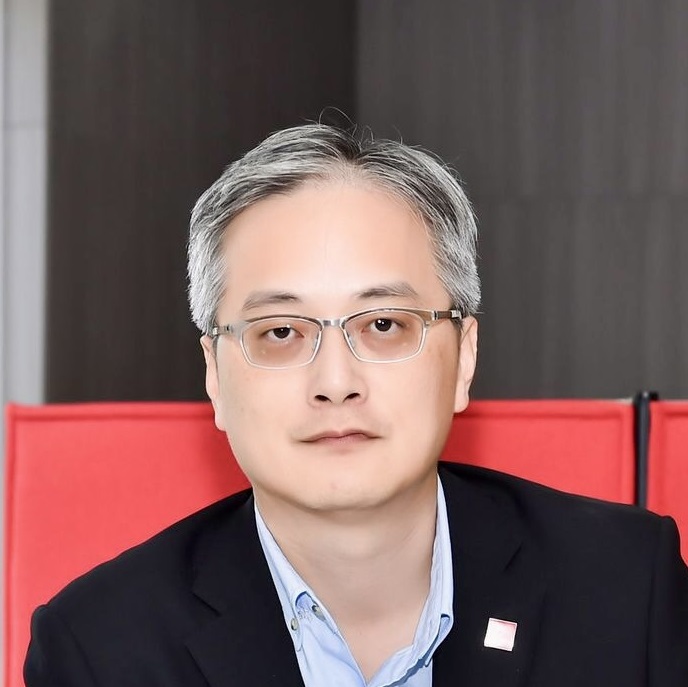
Peter Zhou
Founder of TCC KOLs, Executive Vice Chairman of the CEIBS Alumni Auto Association (CAAA)
Dr. Zhou boasts 23 years of experience in digital servitization and cross-industry innovation within the automotive industry. He has established the Telematics@China Community (TCC) and Tencent Mobility Academy. He has driven advanced digital innovation based on cross-organizational trust by creating a Community of Practice that shared digital knowledge and building digital platform ecosystems. As a founding advisor of projects, he facilitated a strategic joint venture between SAIC Motor and Alibaba Group, leading to the establishment of the unicorn company Banma within just three years and a significant success for the first generation of Software-Defined Vehicle (SDV) in China. Dr. Zhou has held several prestigious positions, including Vice President at Alibaba AutoNavi, Senior Vice President at Banma, Dean of Tencent Mobility Academy, and Senior Researcher at Tencent Research Institute.
As Programme Co-Director, he has collaborated with the China Europe International Business School (CEIBS) to launch the CEIBS-Tencent Joint Programme for the Automotive Industry. Having successfully delivered two sessions, the third is being planned. Besides offering training programs to automotive executives, Dr. Zhou has provided Telematcs and SDV consulting services to OEMs such as General Motors, Volkswagen, Toyota, Nissan, SAIC Motor, Hyundai Kia, SAIC Group, and Great Wall Motor.
A graduate of the Department of Applied Chemistry at Shanghai Jiao Tong University with a proficiency in Japanese from Keio University, Dr. Zhou also holds an MBA and Chief Marketing Officer (CMO) certification from CEIBS. He earned his Doctorate in Business Administration (DBA) from EMLYON Business School in France. His research is dedicated to addressing organizational dysfunctions in the digital transformation of the automotive industry and exploring how Communities of Practice (CoP) can promote organizational changes necessary for SDV.
- What Dynamics Define the Chinese Automotive Industry in 2024 in terms of Supply Side Trends and Demand Side Shifts?
- What Underlying Factors Drive these Changes? Government Subsidies or other Elements? Can CAP + Mark3 Framework explain what happened in China?
- How to Address the Evolving Challenges? What we learned from the Cases of BYD and ChangAn Motor/Huawei/CATL?
17:30 - 17:40 Summary of the first conference day and invitation to the evening program

Ivan Hodáč
Event host, founder of Aspen Institute Central Europe, former ACEA Secretary-General
Ivan Hodač is a Founder and President of the Aspen Institute Prague. He was Secretary-General of the European Automobile Manufacturers’ Association (ACEA) from 2001 until October 2013. He is the Chairman of the Board at cabinet DN. The Financial Times listed him among the most influential personalities in Brussels politics. Before joining ACEA, he was Senior Vice-President and Head of the Time Warner Corporate office for Europe. Previously he was Secretary-General of the trade organization IFMA/IMACE, Senior Economist at Didier & Associates, and Assistant Professor at the College of Europe, Bruges. He was born in Prague, where he studied mechanical engineering. He completed his education in economics and political science at the University of Copenhagen and the College of Europe in Bruges (European studies).
April, 24th (Wednesday)
08:20 - 08:50 The Good, the Bad and the Ugly (Ethics of Automated Vehicles)
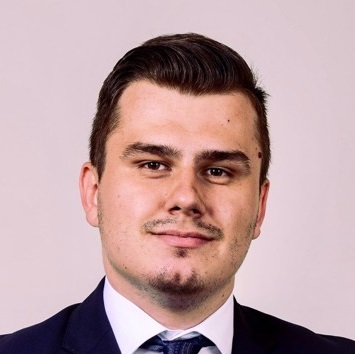
Zoltán Gyurász
assistant professor, Faculty of Law, Comenius University in Bratislava
Zoltán Gyurász is a graduate of the Faculty of Law of the Comenius University in Bratislava. Since 2022, he has been working as an assistant professor at the Institute of Information Technology Law and Intellectual Property Law. He is an international fellow at the Information Society Law Center at the Università degli Studi di Milano and is part of the Expert Map for Ethics and Regulation of Artificial Intelligence at the Permanent Commission for Ethics and Regulation of Artificial Intelligence (CERAI). Since 2023, he has been working as Of Counsel for NextGen Legal.
Roughly 1.3 million lives are extinguished annually on roads, with up to 94% of accidents caused by human error. Surveys indicate that as many as three out of four consumers are skeptical of automated vehicles. Every accident involving an automated vehicle instills fear and doubt in consumers, and such negative public reaction will be further amplified by accompanying moral outrage, leading to a domino effect on consumer trust and significantly undermining people’s confidence in this new technology.
08:50 - 9:40 Revisiting Disruption: Competing in Mobility’s Brave New World
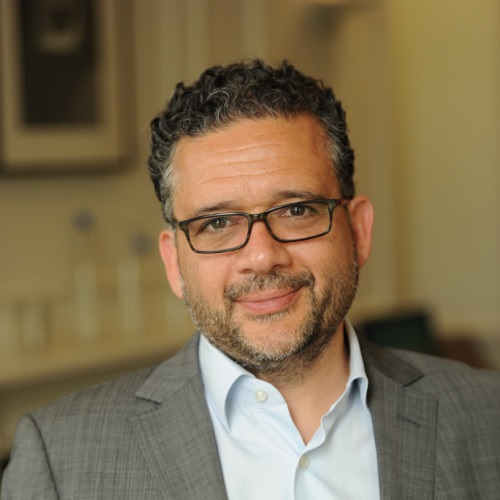
Michael G. Jacobides
Sir Donald Gordon Professor of Entrepreneurship & Innovation and Professor of Strategy, London Business School; Lead Advisor, Evolution Ltd
Michael G Jacobides, Sir Donald Gordon Professor of Entrepreneurship & Innovation and Professor of Strategy at London Business School, is ranked as Thinkers50, a top 50 management thinker worldwide. An Academic Advisor to BCG’s Henderson Institute and Lead Advisor of Evolution Ltd, he advises disruptive start-ups and Fortune500 firms alike. His research on industry transformation, value migration and business ecosystems has won awards by the Sloan Foundation, the StrategieForum and CMR. A co-author of WEF’s White Paper on Digital Platforms & Ecosystems and member of the WEF AI Governance Alliance, he has been on its Global Agenda Council and presented in Davos. He has worked on policy as a Visiting Scholar at the New York Fed, member of High Level groups for the EU and the Industry Parliament Trust in the UK and serves as the Chief Digital Economy Advisor (pro bono) at the Hellenic Competition Commission. A frequent keynote speaker in events from TEDx to the Global Drucker Forum he works on thought leadership with consultants such as McKinsey, IDEO, Accenture, PwC, Deloitte, Keystone and ECSi, and on strategy with corporates such as SAP, MAF, Haier, Huawei, Spotify, Philips, Globe Telecom, MasMovil, Vodafone, Nokia, Enel, Santander, Helvetia, Zurich, CS, BaltCap, Airbus, DeBeers, Lavazza, Burberry, Mowi, MerckSerono, SpringStudio and the NHS. He has visited Harvard, NYU, Cambridge, Imperial, Bocconi and Wharton, where he obtained his PhD, after studying at Athens, Cambridge and Stanford. His work appears in the top academic journals including ICC where he is a co-Editor, as well as HBR and FT. He is Strategy Advisor (pro bono) of ELLET, Greece’s key NGO on environmental & cultural preservation.
Reading the industry and popular press, one might expect the world to look entirely different as a result of the emergence of CASE (Connected car, Autonomous Driving, Shared Ownership, and Electric vehicles). There is constant talk of disruption – and this was also the case even back in the late 1990’s, when large suppliers were expected to shatter the dominance of OEMs. Yet if we look at the sector more carefully, the strategic picture that emerges is very different. With the notable exception of Tesla, a remarkably vertically integrated automobile producer who is active in other parts of the energy value chain, and BYD, which grew from batteries to cars, incumbents still seem to be producing fairly non-modular products. What is changing though is how they do it, and how firms now don’t only rely on their own skills but draw on ecosystems of complementary firms. In his keynote, Professor Jacobides will draw on work both on the strategic dynamics of the mobility and automotive sector, and on the patterns of innovation and success more broadly to consider how firms can succeed in this shifting competitive context, focusing on what matters and leaving (potentially misleading) hype aside.
09:40 - 10:10 The latest EU7 passenger car emission legislation
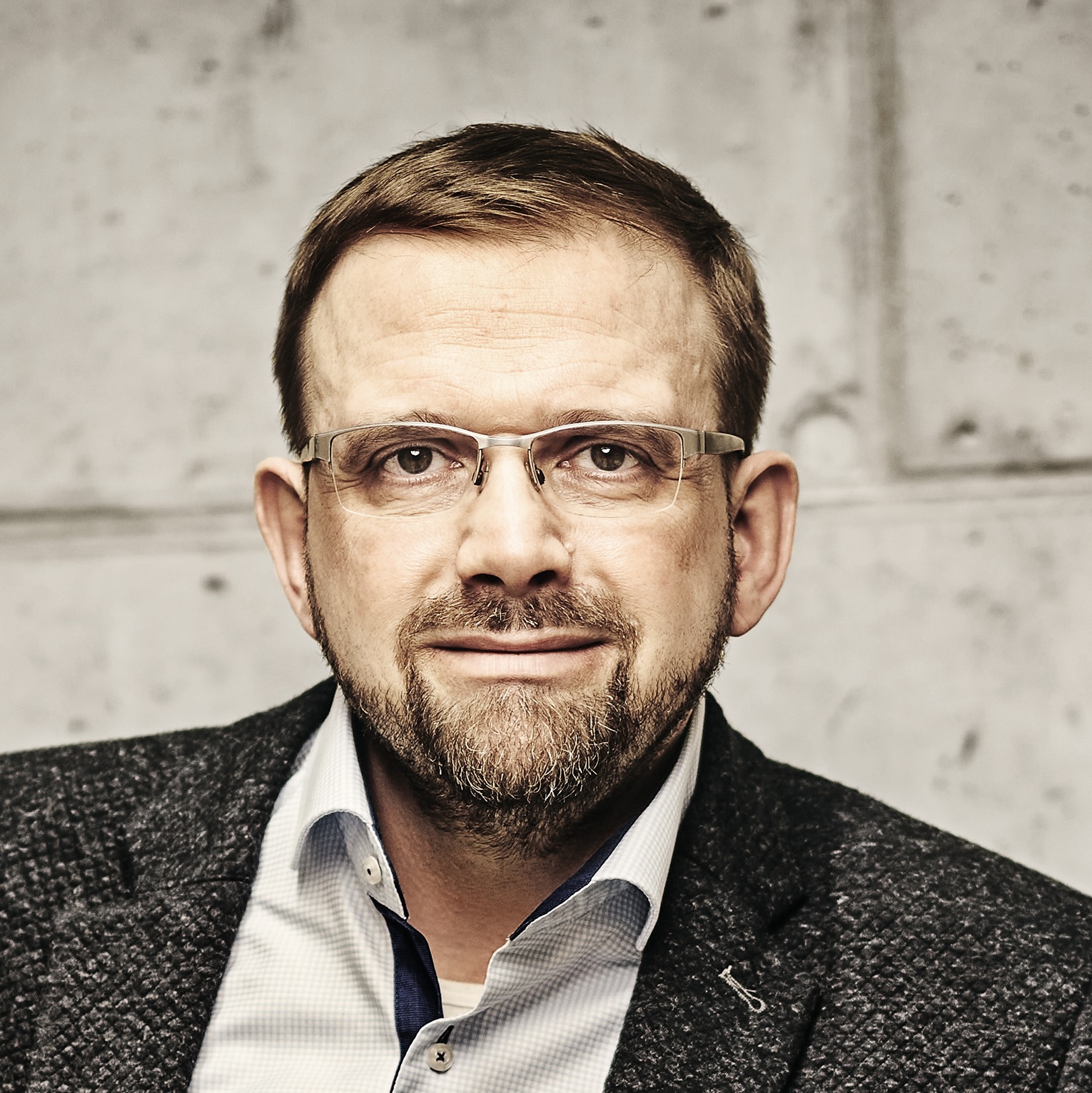
Martin Hrdlicka
Head of the Chassis and Powertain Development, ŠKODA Auto
Head of Chassis and Powertrain Development at ŠKODA AUTO, graduated from the Faculty of Mechanical Engineering of the Czech Technical University in Prague in 1992. In 2002 he obtained an MBA degree from North Carolina’s Pfeiffer University and in 2006 he earned his doctorate from the Ostrava Technical University
Career
1992 Mercedes Benz AG, Stuttgart – Research / Development commercial vehicles, trucks
1993 – 1995 Škoda automobilová a.s.
Design Engineer – specialist in traction control systems
1995 – 1996 VW AG, Wolfsburg
Specialist in chassis development
From 1996 ŠKODA AUTO a.s., Technical Development
Various positions:
– Assistant Department Manager – brake systems (1996 – 2001)
– Simultaneous Engineering Team Manager of Chassis Development for FABIA and SUPERB (1997 – 2001)
– Department Manager, powertrain integration development (2001 – 2005)
– Department Manager, chassis development (2005 – 2008)
– Head of chassis and powertrain development (since 2008)
Member of
– Scientific Council of the Faculty of Mechanical Engineering of the Czech Technical University in Prague
– State Examination Board of the Czech Technical University in Prague
– Scientific Council of the Research Centre of the Technical University in Plzeň
– Board of Directors of Doctoral studies in Production Machines and Design department of the Faculty of Mechanical Engineering of Technical University of Ostrava
– Czech Automobile Society
– Assessment Committee of the National Accreditation Bureau for Higher Education
– Chairman of the Board of Education of the Dr. Josef Pekař Secondary School Mladá Boleslav
– Management Board of the Endowment Fund of ŠKODA AUTO
The lecture will clarify the complexity of the impact of European emission legislation on personal automobiles. Furthermore, it describes the expected scope of tests and requirements that will need to be met for vehicle homologation. Differences between the EU6 and the upcoming EU7 emission standards are outlined.
10:10 - 10:50 Capability-Architecture-Performance Approach to Automotive Industrial Competition: the case of EV- SDV in China
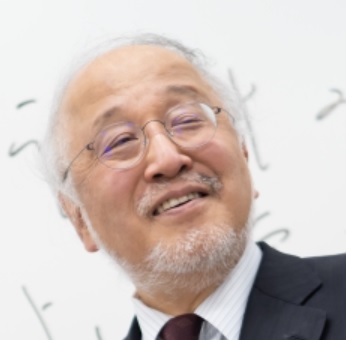
Takahiro Fujimoto
automotive and management expert, professor, Waseda University, professor emeritus, Tokyo University
10:50 - 11:20 Networking break

Congress foyer
11:20 - 11:50 Machines for humans
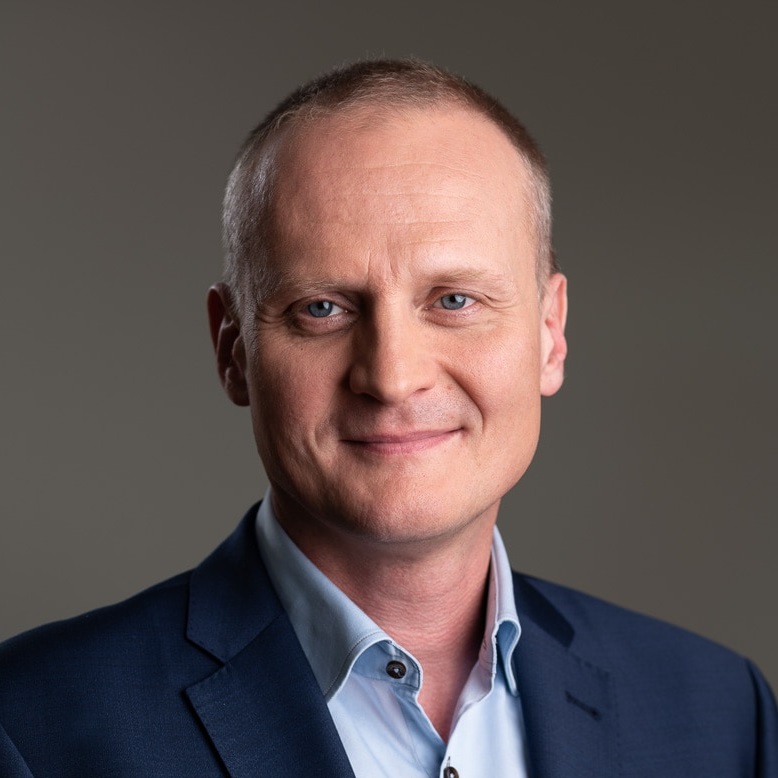
Martin Jančo
CEO, M2M Solutions
He founded and manages M2M Solutions, a Slovak technology company specializing in supply chain management, logistics, and manufacturing processes. Currently, he primarily focuses on new product development and innovation in the fields of mobility and manufacturing. Additionally, he is actively engaged in various activities aimed at addressing R&D challenges.
In recognition of his significant contributions to building the smart industry ecosystem, particularly in the smart mobility and space sectors, he was awarded in 2021 in the category of Science and Technology Personality.
The implementation of robotics into warehouse environments represents a revolution in the field of logistics. Integrating robotic solutions presents the opportunity for streamlined management, fundamentally reshaping warehouse operations. In the face of mounting competition and the imperative for swifter, more precise product delivery, adapting to emerging technological trends becomes crucial. Realizing the full potential of these innovations, while tailoring them to the distinctive requirements of individual businesses, is the key to effective transformation of logistic processes.

Hakeem Zhu
Sales Director Eastern Europe, Hikrobot
7 years industry experience with Chinese manufacture,one of the first batch of Hikrobot as a global product and solution provider specializing in machine vision and mobile robots.
Focusing on IIoT, smart logistics and smart manufacturing, commit to building an open cooperation ecosystem, providing services to industry and logistics customers, and continuing to promote intelligence and lead the intelligent manufacturing process.
The implementation of robotics into warehouse environments represents a revolution in the field of logistics. Integrating robotic solutions presents the opportunity for streamlined management, fundamentally reshaping warehouse operations. In the face of mounting competition and the imperative for swifter, more precise product delivery, adapting to emerging technological trends becomes crucial. Realizing the full potential of these innovations, while tailoring them to the distinctive requirements of individual businesses, is the key to effective transformation of logistic processes.
11:50 - 12:20 ING 4.0 – a unique project for the needs of industry
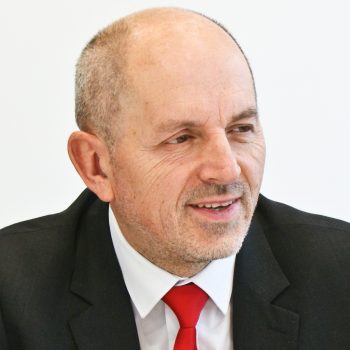
Martin Morháč
founder, Intelligent Industry Association - Industry 4UM
Graduate of the Faculty of Mechanical Engineering STU in Bratislava. He has dedicated his entire professional life to digitization and automation in the industry. He started his career at the Faculty of Mechanical Engineering SVŠT, he dealt with the automation of pre-production phases for the ZTS Group. In 1991, he co-founded SOVA, now known as SOVA Digital. For six years, he led the commission for research, development and innovation of the Automotive Industry of the Slovak Republic. He was a member of the Government Council for Science, Technology and Innovation. He is one of the initiators and leaders of the Association of Intelligent Industry – Industry4UM.
Practical experience says that companies do not need highly qualified specialists in their development, but people who understand well the real needs of the company, its operations, processes, and can also assess the currently available technological opportunities provided by the market. They are able to propose solutions, formulate tasks for suppliers, and competently assess their proposed offers or delivered applications.
Companies today inevitably need to automate and digitize, but they lack workers prepared in this way. Although the standard education system responds to current trends, it is far from meeting the current needs of the industry. The ING 4.0 project is a response to the emerging gap in the labor market.
ING 4.0 education can be seen as a form of lifelong learning. It focuses on industrial workers. It does not intend to raise highly qualified specialists. Its goal is to prepare technical workers in such a way that they are able to bring real proposals for innovations inside their companies in selected areas. The ING 4.0 program was inspired by the successful Swedish project Ingenjör 4.0.
12:20 - 12:50 Current state of processing of used batteries from electric cars: past, present, future
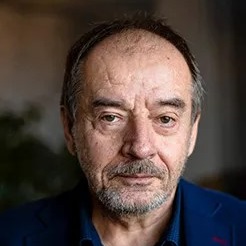
Tomáš Havlík
professor, specialist in material recycling of waste
Long-time head of the Department of Non-Ferrous Metals and Waste Processing and Director of the Institute of Recycling Technologies of the Faculty of Materials, Metallurgy and Recycling of the Technical University in Košice. Responsible solver of several European and national projects in the field of material recycling of waste. Member of the UNIVNET association and solver of the issue of material recycling of traction accumulators from electromobility. Currently retired.
The current global effort is aimed at introducing low-carbon technologies in practically all areas of human activity. In the automotive segment, this has manifested itself in the pursuit of a worldwide application of electromobility, where electric motors are used as drive units, currently powered by lithium-ion traction batteries, which, however, do not have an infinite lifespan, and therefore attention is also paid to the issue of their processing after their lifespan has expired. Discarded Li accumulators are potentially very dangerous waste, but on the other hand they are a source of very important materials, especially Li, Co, Ni, etc., which must be recycled due to their cost and scarcity. However, the recycling of LiA is a complicated and demanding process, as it is a complex composite material and its nature, as well as electrical and chemical properties, are a serious risk in terms of safety and health protection.
12:50 - 13:45 Lunch

Hotel Partizan Restaurant
13:45 - 15:00 Workshop (only in Slovak language)
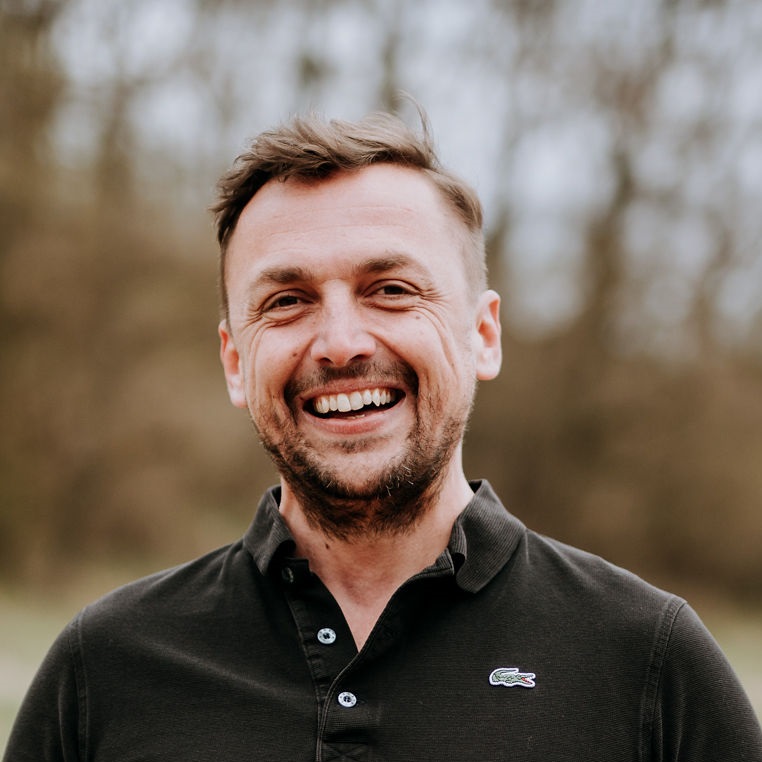
Rudolf Ivan
founder of Roriginal
He worked in various areas, mainly as a manager and leader – R&D, IE, Sales, Quality. Work experience within the EU. Over the last 10 years, he has built (together with the team) one of the largest and most competent R&D departments in Slovakia, creating more than 200 jobs, several 1000 m2 of buildings filled with top technologies, finally responsible for “own” customers and basic development (system development, mechanics and SW). Fascinated by people, how a human being “works”, how relationships work. He studied experiential pedagogy, NLP neurolinguistic programming, personality profile creation so that he could cover all levels of client or team development in his work. He founded Roriginal. He created his own comprehensive methodology of “work-life” balance, which begins with inner happiness, health and strength, awakening resistance to external factors that could trigger strong emotions, fear, stress or limiting beliefs. At the beginning of 2022, he left corporate life and is fully engaged only in the development of the people and teams they want! It helps to develop the client’s strengths to the maximum so that he achieves everything he wants in his life. With one goal of this mission: MASTER YOUR LIFE NOW!
workshop only in Slovak language
13:45 - 15:00 Workshop: investment aid / project financing (only in Slovak language)

Lenka Bartoňová
Director Global Location Services & Incentives, EMEIA Tax Center, EY
Lenka is a Director in the Vienna EY office and joined EY in 2021. Previously, she was a State Aid Leader at another big 4 Company, a former Director of Strategic Investment Department at the Ministry of Economy of Slovak Republic and Head of Investment Project Management Department at the Slovak Investment and Trade Organization.
During her career, Lenka gained practical experience from her work with the European Commission as well as OECD. She has more than 20 years of experience in the field of State Aid law, FDIs, Structuring of cross-country Investments, R&D&I Aid, and the Governing of State Aid, with more than 30 successful projects from the area of Regional Investment Aid.
Lenka has deep knowledge of European Commission notification procedures, ensuring the notification of State Aid for projects.
She is an Official State Aid advisor of several public institutions and Professional Unions in Slovak Republic and a permanent speaker at Foreign Direct Policies Forum and the Joint Vienna Institute.
- Témou workshopu budú aktuálne podmienky pre poskytnutie štátnej pomoci pre rôzne druhy projektov (založenie podniku, rozšírenie prevádzkarne, dekarbonizácia, atď.).
- Zameriame sa na naše praktické skúsenosti s procesom žiadania pomoci a na najčastejšie problémy, ktorým čelia investori pred a počas čerpania pomoci.
- Dotkneme sa aj daňových dopadov rôznych spôsobov financovania projektov.
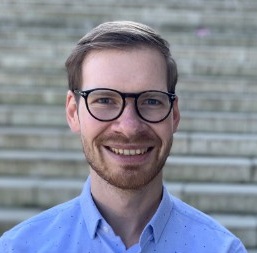
Juraj Lenďák
Tax Manager, EY
A manager in the tax department of EY, where he has been working for 10 years. He primarily deals with investment assistance and transfer pricing. He helped with several successful projects of obtaining and maintaining investment assistance for his clients.
- Témou workshopu budú aktuálne podmienky pre poskytnutie štátnej pomoci pre rôzne druhy projektov (založenie podniku, rozšírenie prevádzkarne, dekarbonizácia, atď.).
- Zameriame sa na naše praktické skúsenosti s procesom žiadania pomoci a na najčastejšie problémy, ktorým čelia investori pred a počas čerpania pomoci.
- Dotkneme sa aj daňových dopadov rôznych spôsobov financovania projektov.


 Slovenčina
Slovenčina